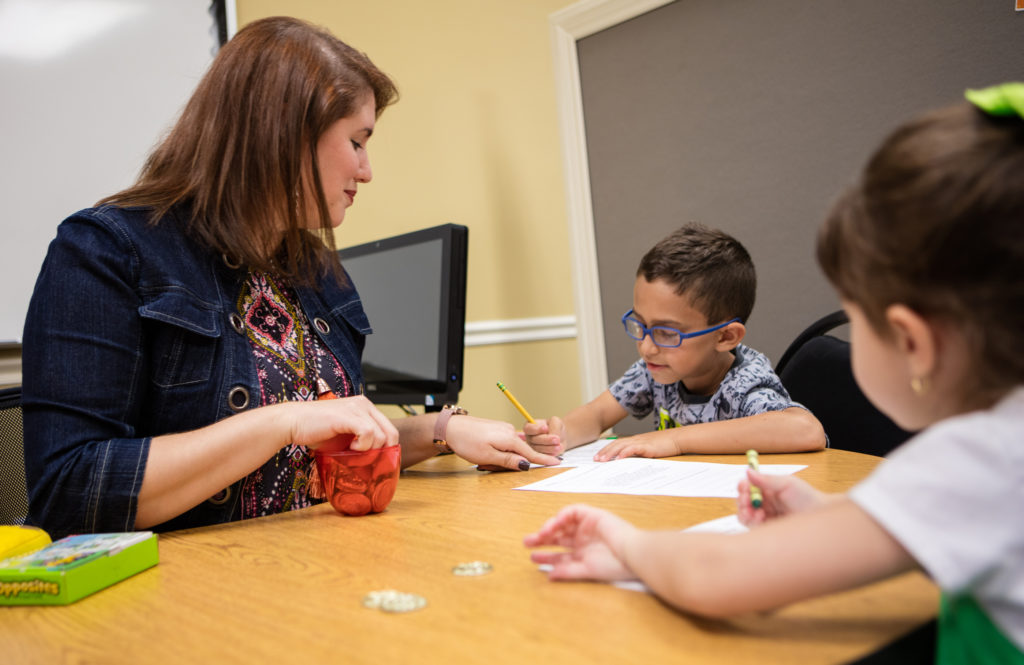More perseverance and less stress during exams.
By Diana Bello Aristizábal
While kids are going to school, one of the aspects that worries the most to parents is their performance, which often times is measured with the grades they get in tests. For this reason, in times of intense academic activity, it is common for families to be highly stressed, something that can be avoided with a few changes at home and a good attitude.
Reducing stress towards exams is vital to send a positive message to children and adolescents about school times that, although they are competitive and require the effort of students, should be mainly fun and enriching.

According to Linette R. Prats, educational consultant and owner of Club Z, a tutoring company in the Doral area that works with clients at their homes, in her experience parents get heavily stressed by their children’s academic performance, even from the very first grades
“This is not necessary. We must give importance to exams but not to the point of making the students nervous, especially taking into consideration that during kindergarten, first and second grades are only to collect data about the progress of the child,” she says.
Sabina García, family and couples therapist specialized in children and adolescents, has a similar opinion. She thinks that many children begin to manifest symptoms of anxiety, as young as seven or eight years of age, due to the pressure they receive from adults.
“These children suddenly wake up with a belly or headaches, sweats, nerves or express not wanting to go to school, because they are afraid of showing to exams, and their bodies are aware of that,” says Sabina García.
Also, they also begin to have doubts about their abilities, reject studying or go blank during exams even after long hours of study time. For her, all of this happens despite the fact that tests are not the only way to measure school performance.
“In some academic courses, as third grade, exams are important to be promoted to the next grade. However, it also counts everything that is done throughout the year, and this is something that should be explained to children,” says Sabrina.
On the other hand, it is also essential controlling stress to avoid passing it on to children as, according to Érika Angulo, infant mental health therapist and parenting specialist, this can lead them to have problems regulating their emotions in the face of an exam, which ultimately can affect their thoughts and rationing.
For Sabina García, the problem of not managing anxiety and stress during exams from early stages is that when children reach middle and high school, their emotional state gets worse. “They get used to being anxious, and that is reflected for the rest of their lives,” says García.
Studying should be a habit.
Considering that anxiety and stress tend to escalate as time goes by, it is ideal to be alongside children, while they are in exams times, in a balanced way by teaching them to study properly without sending negative messages.

For Renefred Maingrette, owner and director of Omega Learning Center in Doral, the main way to do this is to balance academic and social life. “It is important for children to do recreational activities on weekends to reduce the stress of weekdays,” says Renefred.
On the other hand, it is vital not to wait until the last moment to start studying or apply improvement actions. “Many parents fail to do anything until they notice their children are getting bad grades. Therefore, I recommend starting to prepare them one or two months in advance,” she adds.
The main purpose of doing so is to help them carry out a process in which they constantly review the concepts learned in class, either with the help of parents or through professional tutoring.
“Working at home or getting external help, can be very useful to address topics or concepts that were uncleared during class because sometimes it is difficult for children to understand in a class full of students,” says Renefred.
In this regard, Linette R. Prats believes that the grades obtained at each term of the school year are a way to measure performance to later apply improvement actions. “If, for example, in the second term your child gets a C, that is already a red flag. Look for help from the beginning so that in the next term, grades get better,” she says.
In addition, experts advise parents to really know what is the importance of the exam about to be taken. “They tend to worry a lot about third-grade exams without knowing that there are four opportunities to pass throughout the year,” says the consultant.
Therefore, having enough information about the exam that will be taken is key to direct the efforts made at home, and to reduce the stress of adults that, naturally, will be reflected in children as a domino effect.
In the first grades state assessments, for example, it is not only measured how much the student has learned but other soft skills such as the ability to follow instructions or the knowledge that the child has regarding language, this especially applies to foreign students.
Also, these exams and all, in general, aim to evaluate progress and verify the student’s readiness for the next school year. As for high schoolers, tests are an indicator of how prepared they are to go to college.
For all this, exams should be viewed as the result of a process. “To parents who focus too much on grades, we tell them that children should not only study to get good grades but to understand and learn. However, when they do, let them know that it was because of their effort. Teach them to study for them and not just to please adults, and recognize their progress,” advises Renefred Maingrette.
Within that process, it is also important to consider individual circumstances that may play a role in academic performance. For example, a student of American origin will probably won’t have the same performance as one who has been in the country for a few months. “In this case, it may be difficult to approve the first exams, because the student is learning a new educational system,” says Linette R. Prats.
 To sort out individual circumstances that may surround a child, it is convenient to regularly attend parent meetings and have close communication with teachers to learn about his or her strengths, and give the correct motivation.
To sort out individual circumstances that may surround a child, it is convenient to regularly attend parent meetings and have close communication with teachers to learn about his or her strengths, and give the correct motivation.
“If you feel that your child is anxious before an exam, is constantly distracted, cries when doing homework or has a poor performance, team-up with the teachers, as they spend more time with your kid than you,” says Renefred Maingrette.
It is also recommended to have a conversation with the child to inquire on the reasons behind his or her behavior and to ask the most relevant questions to make a diagnosis of the case and find the best possible solution.
“You have to find out if your child feels comfortable in class, also what causes the stress and if he or she likes or not participating in academic activities. If the answer is no, you can ask what is the reason for this or seek the intermediation of a third party that could guide the student,” recommends Linette R. Prats.
It is also advisable to know exactly what concepts your child did not understand, and if a part of the lesson was harder than the others. While doing so, remember that a grade is not a reflection of his or her abilities or value as a person.
Avoid making these mistakes
- Not eating or sleeping well the day before. Covering the children’s basic needs will help them to be more focused and prepared for exams.
- Telling them: “I was not good for that subject either. You inherited it from me”. This only makes them have an excuse for not trying.
- Punishing without considering the effort made. Instead of doing this, Sabina García advises reinforcing the message that they are capable and offer help to study.
- Speaking negatively and being inflexible with lines such as “in this house, you can not get a grade below B” or “that grade is the result of your lack of study.”
- Not helping them to manage their anxiety. Sabina García recommends teaching breathing techniques in times of stress, speaking positively or putting on pleasant music.
- Not seeking psychological help on time, ignoring the problem or hiding it.
- Not listening to them. It is important to let them express freely without making judgments because talking about the issue usually makes the problem look smaller.
- Forgetting that we were once children too. “As parents, we have to take a step back and remember how we were as little ones. When we came home with a bad grade, how did we feel, and how my parents reacted?,” says Renefred Maingrette.
- According to Erika Angulo, not validating the child’s emotions such as fear, frustration or anxiety. “We must remind them that we trust in their effort and tell them that they have us to support them in everything,” she says.

